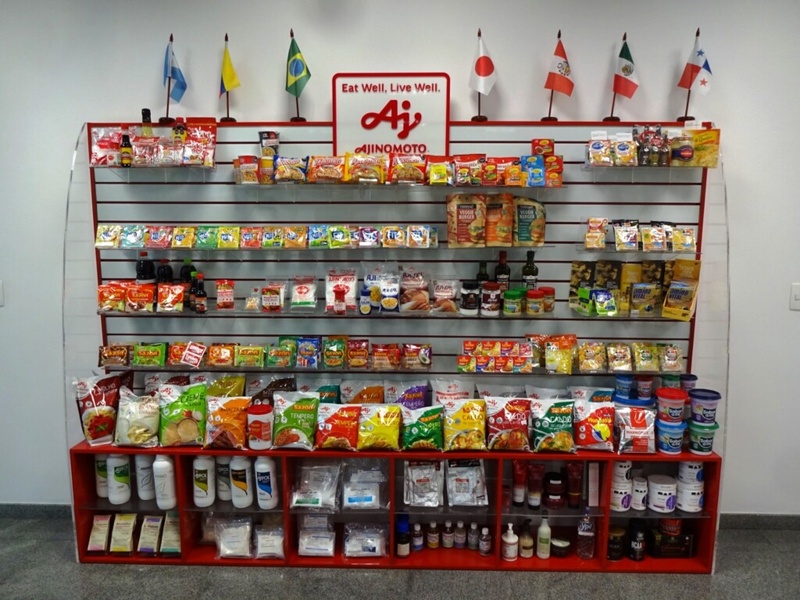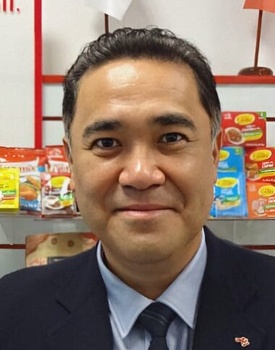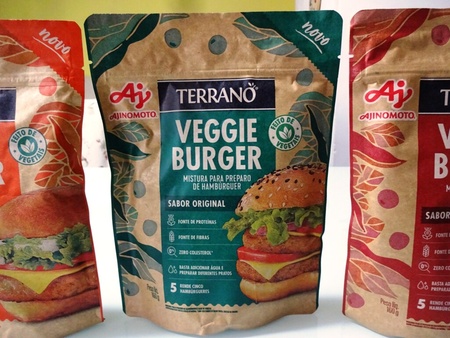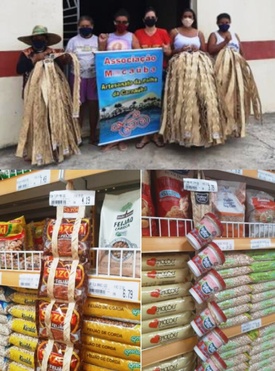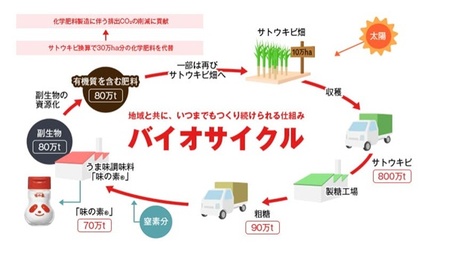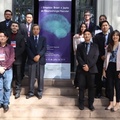In the fourth installment, we spoke with Shigeo Nakamura, president of Ajinomoto Brazil. After the war, Japanese immigration to Brazil resumed in 1953, and Ajinomoto expanded into Brazil three years later. Throughout its 67 years in Brazil, Ajinomoto has supported the people's diet.
The Little Ajinomoto Company Challenge
"Little Ajinomoto" is the nickname given to Ajinomoto Brazil. It comes from the fact that among the overseas subsidiaries of the globally expanding Ajinomoto Group, Ajinomoto Brazil is the only one that has two businesses and manufacturing bases, food and aminoscience (a general term for the diverse materials, functions, technologies, and services obtained from the functions of amino acids), just like in Japan.
Taro Fujie, who was appointed president of Ajinomoto Brazil last year, was appointed president of Ajinomoto Brazil in 2015. Having gained experience at the small Ajinomoto Group in Brazil, he has now returned to the big Ajinomoto Group.
The company's flagship product is the mixed seasoning "Sazón." Since its launch in 1988, it has supported people's dietary habits as the top seasoning brand in Brazil, with sales reaching 400 million packs per year. It is so popular that it has become synonymous with "amor (love)."
In developing products such as "Sazón," the company has continued to seek optimal methods by understanding and respecting the wide range of needs of its citizens, including racial diversity and income disparities. The diverse products, which incorporate ingredients unique to Brazil, are delicious and easy to prepare, and are popular not only for everyday use but also as souvenirs for foreigners.
Contributing sustainably to people's nutrition and health
With the goal of "contributing to the well-being of people, society, and the planet through AminoScience," the company aims to extend the healthy lifespan of one billion people by 2030 and reduce the environmental impact by 50% while maintaining business growth, and is engaged in product development and social activities originating from Brazil.
Brazilian money-saving recipes are becoming increasingly popular
In response to the economic situation in Brazilian society and the problem of food waste, the company has developed money-saving recipes that use inexpensive ingredients such as beans, as well as recipes that make use of banana, pineapple, and potato peelings that would normally be thrown away.These recipes are being introduced on the company's website and have been well-received.
Plant-based meat is a popular souvenir from overseas
The Terrano Veggie Burger, a plant-based meat (PBM, a meat substitute made from plant-based ingredients) that went on sale in August last year, is made from 100% plant-based ingredients and is a cholesterol-free food that allows you to easily consume protein and dietary fiber. It is delicious and can be cooked in a variety of ways by simply adding water.
In recent years, the environmental impact of livestock farming has become a global issue. With the global population increasing, UN estimates suggest that meat as the main source of protein may face a supply shortage in the future, and interest in plant-based protein sources as an alternative to meat is growing.
Responding to the rapidly expanding PBM market, mainly in Europe and the US, due to environmental awareness, the product comes in three flavors: original, beef, and chicken. It is a product only available in Brazil.
Environmentally friendly amino acid-based cleaning agent
Demand for amino acid-based detergents made from vegetable oils is growing as an alternative to petroleum-based detergents. The company also manufactures and sells the detergent "AMISOFT" and wetting agent "AJIDEW" that utilize the company's amino acid technology. These are highly biodegradable and safe, and are used in products such as cosmetics, hand soaps, and kitchen detergents.
Employment support with hanging fixtures made from plant materials
In low-income areas of northeastern Brazil, the company supports the production of hanging fixtures made from plant materials as a way of supporting local women in finding employment. The finished products are often more popular with stores than traditional plastic fixtures, and are often displayed in prominent locations.
A sustainable ecosystem for AJINOMOTO manufacturing
In response to the issue of global climate change, the company is promoting energy conservation activities and the use of renewable energy electricity, aiming to reduce the burden throughout the entire life cycle. By the end of fiscal year 2022, CO2 emissions will be reduced by almost half compared to fiscal year 2018. The company will continue to aim to reduce CO2 emissions by introducing new manufacturing methods for amino acids that have a lower environmental impact.
Ajinomoto is produced from agricultural raw materials such as sugarcane, and the co-products (fermentation liquid and other by-products rich in amino acids and other nutrients) are recycled and reused as liquid fertilizer for agricultural crops. This ecosystem, which the company calls a "biocycle," replaces chemical fertilizers with co-product fertilizers, improving agricultural production and contributing to reducing CO2 emissions.
Discovering new value through intercultural exchange
Aiming for "local production and local sales," the company is one of the export bases for products for the Brazilian domestic market as well as for other Ajinomoto Group companies. There is also an active exchange of human resources with other overseas bases, and currently six employees from Ajinomoto Brazil are working overseas (three in Japan, one in Thailand, and two in Peru), and the company has also accepted one employee from Ajinomoto Peru, promoting diversity and inclusion of human resources (efforts to utilize diverse human resources and enable them to demonstrate their capabilities). Little Ajinomoto continues to bring innovation to the world's diet through various challenges originating from Brazil.
|
Ajinomoto Brazil |
*This article is reprinted from Brasil Nippou (May 20, 2023).
© 2023 Tomoko Oura


